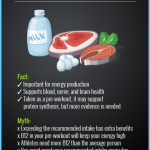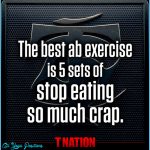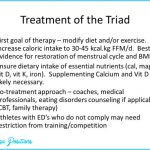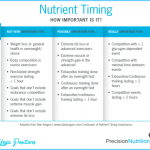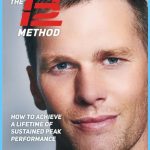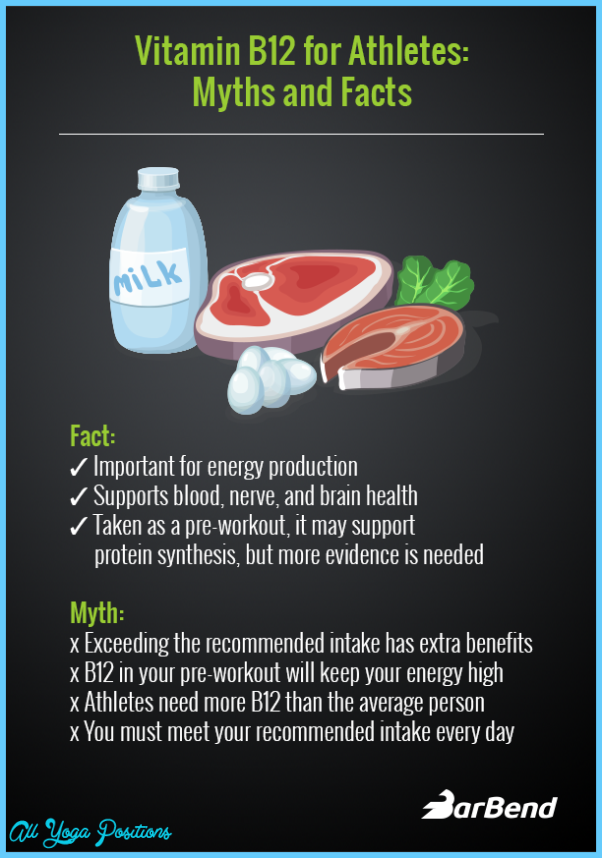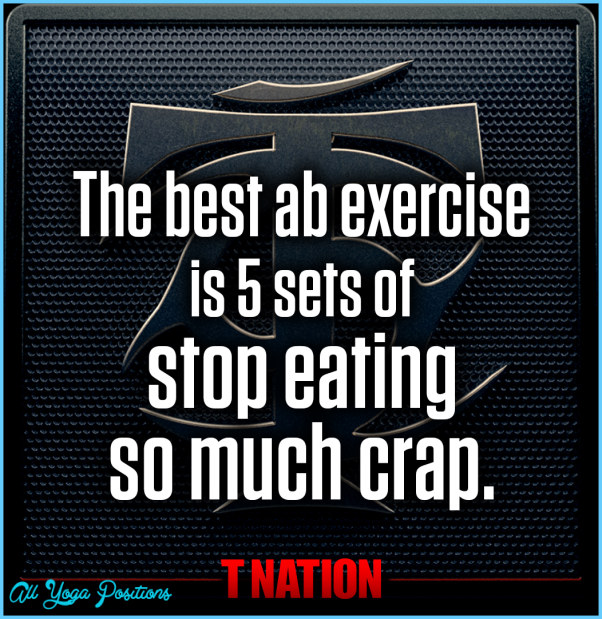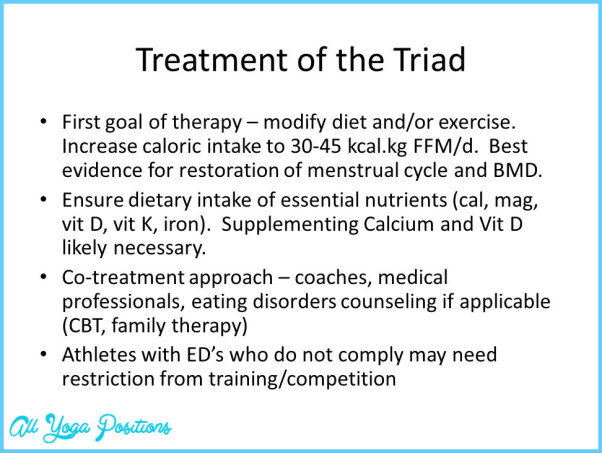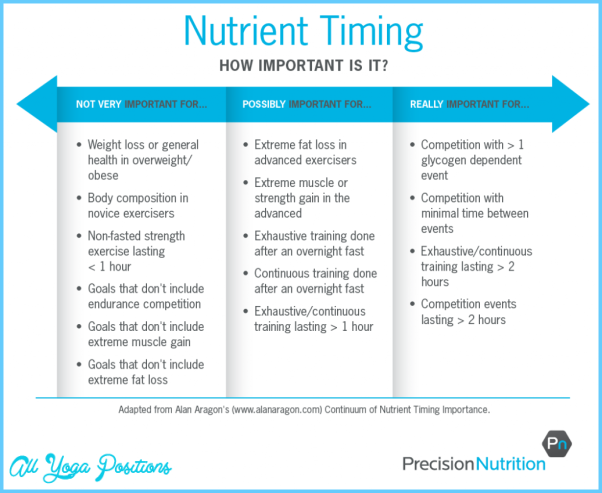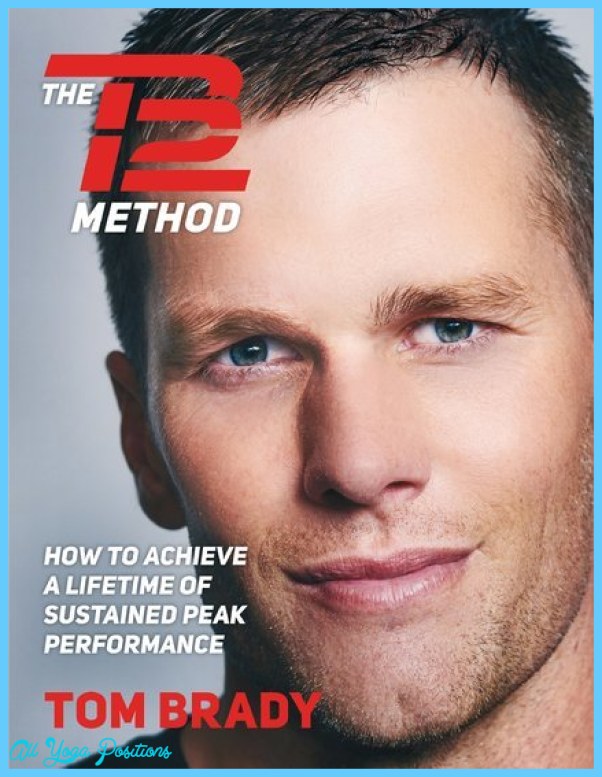THE EVIDENCE FOR EXERCISE Do Athletes Need a Different Diet?
If you exercise vigorously and frequently, or if you are an athlete in training, you likely have increased energy and fluid requirements. Research supports the following recommendations for athletes:
• Energy intake: Someone engaged in a vigorous training program may have energy needs as high as 6000 calories per day far greater than the energy needs of a moderately active person. For athletes, the Academy of Nutrition and Dietetics (formerly the American Dietetic Association) recommends a diet with 60-65% of calories coming from carbohydrates, 10-15% from protein, and no more than 30% from fat.
Athletes who need to maintain low body weight and fat (such as gymnasts, skaters, and wrestlers) need to get enough calories and nutrients while avoiding unhealthy eating patterns such as bulimia. The combination of low body fat, high physical activity, disordered eating habits and, in women, amenorrhea is associated with osteoporosis, stress fractures, and other injuries. If keeping your weight and body fat low for athletic reasons is important to you, seek dietary advice from a qualified dietitian and make sure your physician is aware of your eating habits.
THE EVIDENCE FOR EXERCISE Do Athletes Need a Different Diet? Photo Gallery
• Carbohydrates: Endurance athletes involved in competitive events lasting longer than 90 minutes may benefit from increasing carbohydrate intake to 65-70% of their total calories. Specifically, the American College of Sports Medicine (ACSM) recommends that athletes consume 2.7-4.5 grams per pound of body weight daily, depending on their weight, sport, and other nutritional needs. This increase should come in the form of complex carbohydrates.
High carbohydrate intake builds and maintains glycogen stores in the muscles, resulting in greater endurance and delayed fatigue during competitive events. The ACSM recommends that before exercise an active adult or athlete eat a meal or snack that is relatively high in carbohydrates, moderate in protein, and low in fat and fiber. Eating carbohydrates 30 minutes, two hours, and four hours after exercise can help replenish glycogen stores in the liver and muscles.
• Fat: The ACSM recommends that all athletes get 20-35% of calories from fat in their diets. This is in line with the daily intake suggested by the Food and Nutrition Board. Reducing fat intake to less than 20% of daily calories can negatively affect performance and be harmful to health.
• Protein: For endurance and strength-trained athletes, the ACSM recommends eating 0.5-0.8 gram of protein per pound of body weight each day, which is considerably higher than the standard DRI of 0.36 gram per pound. This level of protein is easily obtainable from foods; in fact, most Americans eat more protein than they need every day. A balanced, moderate-pro-tein diet can provide the protein most athletes need.
There is no evidence that consuming supplements containing vitamins, minerals, protein, or specific amino acids builds muscle or improves sports performance. Strength and muscle are built with exercise, not extra protein, and carbohydrates provide the fuel needed for muscle-building exercise.
• Fluids: If you exercise heavily or live in a hot climate, you should drink extra fluids to maximize performance and prevent heat illness. For a strenuous endurance event, prepare yourself the day before by drinking plenty of fluids. The ACSM recommends drinking 2-3 milliliters of fluid per pound of body weight about four hours before the event. During the event, take in enough fluids to compensate for fluid loss due to sweating; the amount required depends on the individual and his or her sweat rate. Afterward, drink enough to replace lost fluids about 16-24 ounces for every pound of weight lost.
Water is a good choice for fluid replacement for events lasting 60-90 minutes. For longer workouts or events, a sports drink can be a good choice. These contain water, electrolytes, and carbohydrates and can provide some extra energy as well as replace electrolytes like sodium lost in sweat.
source: American College of Sports Medicine. 2009. American College of Sports Medicine Position Stand: Nutrition and Athletic Performance. (http://www.acsm-msse.org/pt/pt-core/template-journal/ msse/media/0309nutrition.pdf; retrieved April 23, 2013).

